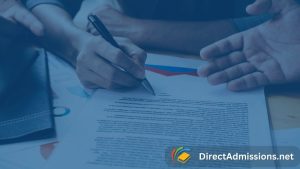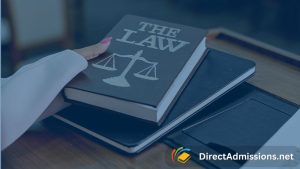Preparing for Job Interviews after LLB
After completing an LLB (Bachelor of Laws) degree, graduates find themselves at a critical juncture in their careers. The transition from student life to the professional world is often accompanied by a mix of excitement and apprehension. One of the key steps in this transition is preparing for job interviews. Whether you’re aiming for a position in law firms, corporate houses, the judiciary, academia, or government services, effective preparation is crucial to stand out in a competitive job market. This guide will provide a detailed approach to help LLB graduates successfully navigate the job interview process.
Understanding the Job Market
The first step in preparing for job interviews after LLB is understanding the job market. The legal profession in India offers various career paths. Common options include joining law firms, corporate legal departments, judiciary, public interest litigation, NGOs, academia, and government services. Each sector has its own set of expectations, work culture, and requirements.
1. Law Firms:
- Role: Working in law firms often involves handling cases, drafting documents, conducting research, and client interaction.
- Skills Needed: Strong analytical skills, good communication, attention to detail, and the ability to work under pressure.
- Interview Focus: Interviews at law firms usually focus on technical legal knowledge, ability to handle multiple cases, and client management skills.
2. Corporate Sector:
- Role: In-house legal departments of corporations deal with contracts, compliance, legal risks, and litigation.
- Skills Needed: Business acumen, negotiation skills, and an understanding of corporate law.
- Interview Focus: Questions may revolve around how you would handle legal issues in a corporate setting and your understanding of business operations.
3. Judiciary:
- Role: Working as a judge involves interpreting laws, delivering judgments, and ensuring fair trials.
- Skills Needed: Analytical thinking, objectivity, deep understanding of laws, and good judgment.
- Interview Focus: Interviews may include questions on landmark judgments, principles of law, legal precedents, and judicial ethics.
4. Government Services:
- Role: Positions in the government, such as Public Prosecutor, Legal Advisor, or Officer involve implementing legal policies, handling law enforcement matters, and legal advisory.
- Skills Needed: Public service orientation, understanding of constitutional law, and awareness of current legal issues.
- Interview Focus: Questions could cover public law, recent legal developments, and issues related to governance.
Key Skills for LLB Graduates
To excel in job interviews, LLB graduates need to demonstrate a blend of technical and soft skills.
1. Legal Knowledge:
- Comprehensive Understanding: Have a thorough grasp of constitutional law, civil and criminal law, corporate law, property law, intellectual property, family law, and international law.
- Recent Legal Developments: Stay updated on recent judgments, amendments, and legal reforms.
- Application: Be prepared to discuss how your legal knowledge applies to real-world scenarios and case studies.
2. Analytical and Research Skills:
- Case Analysis: Be ready to analyze legal cases, interpret statutes, and identify legal issues.
- Research: Show your ability to conduct in-depth legal research and produce accurate, well-reasoned conclusions.
- Documentation: Demonstrate your ability to draft legal documents, contracts, and briefs.
3. Soft Skills:
- Communication Skills: Be clear, articulate, and confident in your speech. Interviews often assess how effectively you communicate your ideas and arguments.
- Problem-Solving: Display your ability to solve complex legal problems and provide solutions.
- Teamwork: Show that you can work well with others, whether in a team of lawyers or across departments.
Building an Effective Resume and Cover Letter
Your resume and cover letter are your first opportunities to make a strong impression. Here’s how to create them:
1. Resume:
- Format: Keep it simple and professional. Use bullet points for clarity.
- Content: Include your educational qualifications, work experience (if any), skills, certifications, and achievements. Highlight any legal internships, moot courts, or legal research work.
- Key Sections:
- Contact Information: Name, phone number, email address, and LinkedIn profile.
- Objective/Summary: A brief statement about your career goals and how they align with the job you are applying for.
- Education: Include all relevant degrees and certifications.
- Work Experience: Detail any legal internships, clerkships, or professional experiences.
- Skills: Technical legal skills, languages, software proficiency, and soft skills like communication and teamwork.
- Achievements: Mention any awards, distinctions, publications, or presentations.
2. Cover Letter:
- Personalization: Tailor each cover letter to the job and organization you are applying to. Mention specific aspects of the job that interest you and how you can contribute to the organization.
- Content: Highlight your legal background, key skills, and why you are a good fit for the role. Discuss what you hope to achieve in the role and how you can add value to the organization.
- Closing: Express enthusiasm for the role and request an interview. Include your contact information at the bottom.
Preparing for the Interview
Preparation is key to performing well in interviews. Here’s a step-by-step guide:
1. Research the Organization:
- Understand the Culture: Read about the organization’s history, mission, values, and recent news.
- Legal Services: Familiarize yourself with the specific legal services they offer, recent cases they handled, and their client base.
- Interview Style: Different organizations may adopt different interview styles (e.g., traditional, panel, technical, or case study). Understand what to expect based on your research.
2. Practice Common Interview Questions:
- Technical Questions: Prepare to answer questions about legal principles, landmark judgments, constitutional law, and current legal issues.
- Behavioral Questions: Prepare for questions about your past experiences, teamwork, conflict resolution, and problem-solving.
- Situational Questions: These questions test how you handle specific situations in a legal setting.
3. Mock Interviews:
- Practice: Conduct mock interviews with peers, mentors, or family members. Get feedback on your responses, body language, and confidence.
- Questions to Practice:
- What are the key legal developments currently affecting the industry?
- Can you explain a complex legal case you have worked on?
- What challenges have you faced in previous legal roles, and how did you overcome them?
- How do you prioritize your work when handling multiple cases?
- Describe a time when you disagreed with a superior on a legal decision. How did you handle it?
4. Behavioral and Technical Preparation:
- Behavioral: Reflect on past experiences and how they shaped your legal career. Be ready to discuss instances of leadership, teamwork, handling stress, and ethical dilemmas.
- Technical: Revise legal theories, statutes, and case laws relevant to the job role. Practice answering questions that require legal interpretation.
Handling the Interview Day
The day of the interview can be nerve-wracking. Here’s how to manage it effectively:
1. Dress Professionally:
- Appearance: Dress conservatively and professionally. Choose a well-tailored suit, formal shoes, and minimal accessories.
- Grooming: Ensure proper grooming and cleanliness. Men should be clean-shaven or have neatly trimmed facial hair, and women should style their hair conservatively.
2. Plan Your Journey:
- Time Management: Arrive at least 15-20 minutes early. Plan your route in advance to avoid last-minute rush.
- Documentation: Bring multiple copies of your resume, a pen, notepad, and any documents you may need (like certificates or ID proofs).
3. During the Interview:
- Body Language: Maintain good posture, make eye contact, and listen carefully. Avoid fidgeting or looking distracted.
- Questions to Ask: Prepare thoughtful questions to ask the interviewer about the role, team, or organization. This demonstrates your interest and enthusiasm.
- Follow-Up: At the end of the interview, express gratitude, shake hands firmly, and ask about the next steps in the selection process.
Post-Interview Follow-Up
After the interview, follow up with a thank-you email expressing your appreciation for the opportunity to interview. Briefly restate your enthusiasm for the position and the organization. This shows professionalism and reinforces your interest in the job.
Conclusion
Preparing for job interviews after completing an LLB degree requires a strategic approach. By understanding the job market, developing key skills, building a strong resume, and practicing interview techniques, LLB graduates can position themselves as strong candidates in the legal profession. With dedication and proper preparation, they can successfully transition from academics to a rewarding legal career.





